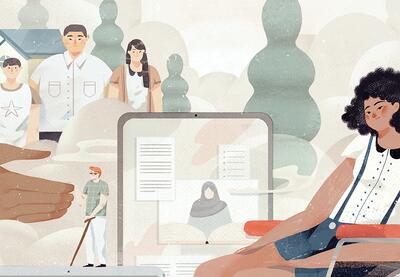This inaugural issue of Learning for Justice magazine could not have come at a more critical moment. Together we are witnessing an unprecedented paradox of time. It’s a time of poignancy, great promise and hope. But it’s also a time of pain and sorrow stemming from a global pandemic that exacerbated economic and racial injustices. We recognize the reported and unreported state-sanctioned police violence against Black lives and the increase in hate crimes against members of the Asian American community. We also bear witness to the rapid upspring of laws and policies set forth to undermine the voting rights of Black and Brown people and those experiencing poverty, to eliminate the gender rights of our students and the right for all students to have an inclusive, honest and meaningful learning experience.
Despite the poignancy of this time, the urgency of now also calls for hope and promise—and action. Educators, students, their families and communities are joining together to demand truth-telling in schools and to counter decisions that censor dialogue around race and injustice in the classroom. People are applying collective pressure to ensure enforcement of the law through Plyler v. Doe, affirming undocumented children’s rights to enroll and participate fully in public schools. All over the nation, people are working together for a stronger democracy. These actions are necessary.
“There is never time in the future in which we will work out our salvation. The challenge is in the moment; the time is always now.”
—James Baldwin
How we respond to this urgent moment will determine how we shape the meaning of justice. This time requires a unified base of advocates committed to a multiracial, multiethnic democracy. We’ve collectively learned lessons from this past year—and much longer. Following them will get us closer to the world we hope for ourselves and for the generations to come. I am proud that this first issue of Learning for Justice magazine speaks to these lessons. As you flip through this issue, I hope you will internalize the call to learn from these lessons and advance justice in your school community.
Lesson one: We can’t return to our schools, classrooms, workplaces or community spaces and get back to business as usual. The lens of justice must be refocused. As LiberatED founder Dena Simmons explains in her interview with LFJ Associate Editor Crystal L. Keels, “Much of what we were doing before was because it was convenient and what we knew. However, there’s a tension between equity and efficiency. We need to be doing the work of equity, which takes time. It’s a process, but we have not yet invested in it.”
Lesson two: Our schools can’t exist isolated from the communities they are placed in. LFJ Senior Writer Coshandra Dillard makes this clear in “Envisioning School Safety Without Police.” People in several U.S. communities, from parents and former students to members of grassroots organizations and intergenerational initiatives, explain why those most affected by school police presence must have a say in what safety and justice mean in their contexts.
Lesson three: This is our shared time in history to forge the arena for a multiracial, multiethnic democracy. The ways in which disinformation and misinformation have jeopardized this arena, especially online, are critical fights of this time. LFJ Senior Writer Cory Collins spells out the stakes of this fight in “Reimagining Digital Literacy Education to Save Ourselves.” And in “We Can Create Change Together,” LFJ Professional Development Manager Sarah-SoonLing Blackburn argues for the importance of remembering and teaching about multiracial solidarity: so that young people see that they have the power—and great examples—to enact justice in community with one another.
Each story in this issue attests that “the arc of the moral universe is long, but it bends toward justice.”
This school year, let us all commit to working in solidarity to champion the needs of our children, first and foremost. And let’s allow our shared lessons to inform and inspire us to keep moving forward for a more just and equitable education for all young people.
